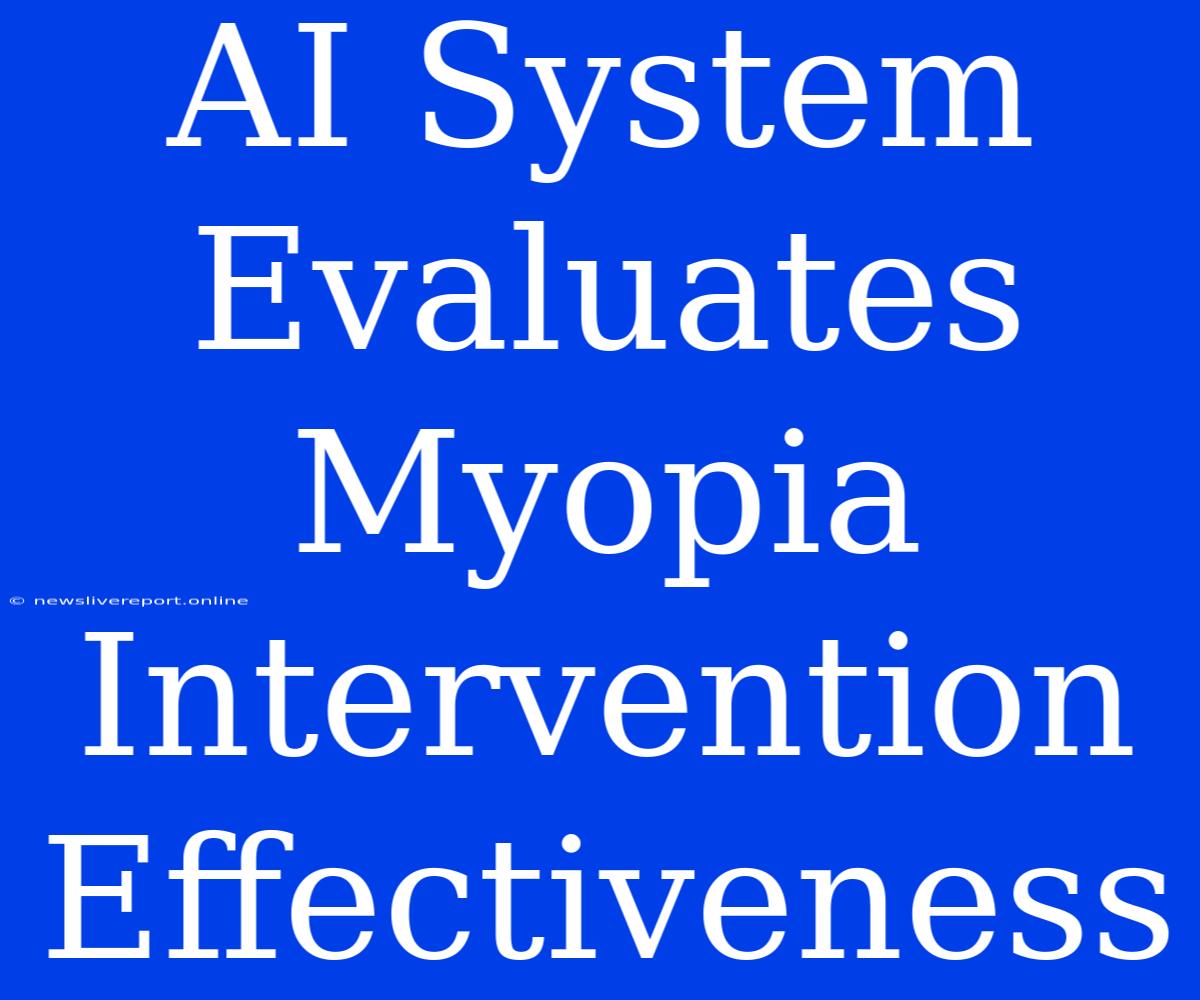AI System Evaluates Myopia Intervention Effectiveness: A New Era of Vision Care?
Myopia, or nearsightedness, is a growing global concern affecting millions. Traditional methods for slowing its progression have yielded mixed results, but a new wave of AI-powered solutions is bringing hope to the fight against this vision impairment.
H2: AI: The Game Changer in Myopia Management
Imagine a system that can analyze vast datasets of patient information, including eye scans, lifestyle factors, and treatment responses, to predict myopia progression and personalize treatment plans. This is the promise of AI in myopia management.
H3: How AI Systems Work
These intelligent systems leverage machine learning algorithms trained on massive amounts of data. They can:
- Identify risk factors: Analyze patient data to identify individuals at higher risk of developing or progressing myopia.
- Predict progression: Estimate the rate of myopia progression based on individual factors, allowing for timely interventions.
- Personalize treatment: Recommend tailored treatment plans based on individual needs and risk profiles.
H2: Promising Results and Ongoing Research
Early studies have shown promising results with AI-powered myopia interventions. For example, researchers have developed systems that can:
- Predict myopia progression with high accuracy: One study demonstrated an accuracy of over 80% in predicting myopia progression in children.
- Optimize treatment strategies: AI-driven algorithms can help identify the most effective treatment options for individual patients, maximizing their chances of slowing down myopia.
H2: The Future of Myopia Management
The development of AI-powered myopia management systems is still in its early stages, but its potential is undeniable. These systems offer:
- Enhanced accuracy: More precise predictions and personalized treatments compared to traditional methods.
- Early intervention: Identifying high-risk individuals early allows for timely intervention and potentially preventing severe vision impairment.
- Improved patient outcomes: AI can contribute to more effective treatment outcomes and potentially minimize the need for more invasive procedures later in life.
H2: Challenges and Considerations
While promising, the adoption of AI in myopia management also presents challenges:
- Data privacy concerns: The collection and use of sensitive patient data require careful attention to privacy and security protocols.
- Accessibility and cost: Ensuring equitable access to these technologies for all populations is crucial.
- Ethical considerations: The use of AI in healthcare requires careful ethical considerations to ensure unbiased algorithms and transparent decision-making.
H2: The Bottom Line
AI has the potential to revolutionize myopia management. As research progresses, we can anticipate the development of even more sophisticated AI systems that offer greater accuracy, personalized treatment, and better patient outcomes. While challenges exist, the future of myopia management looks bright with the power of AI at our disposal.

